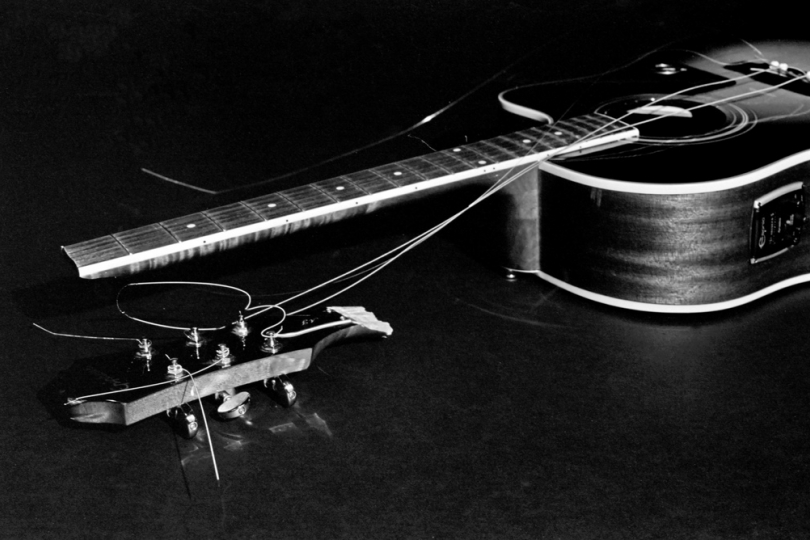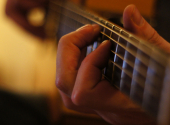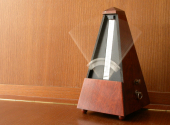
5 Things Guitarists Should Definitely Not Be Thrifty About
First band, first gigs, first experiences. How to survive it all and keep going? I don't have a solution for everything, but I assume that you're not swimming in money. However, there are some things that are definitely not worth skimping on. Here are the five most important ones for beginning guitarists.
1. Guitar
It has to be fun to play, reliable and, most importantly, well set-up. On Insounder, you can find advice on how to find the right one, so I would just like to remind you that every additional effect, every additional five bucks you spend on an amp takes away from the main thing you play: the guitar. Everything else can be borrowed, loaned, and replaced—but the instrument you practice, rehearse, and play gigs on is the most important. It's what you use to hone your technique and your tone. I would advise buying one multi-effect (even if it's of lesser quality) instead of five separate effect boxes, and use the money you save to buy a good guitar.
2. Tuner
No-one who comes to your gig will remember how beautiful your delay sounds in the fifth bar and how much better it is than the cheap one. Names on amps and combos don't mean much to your audience. But everyone will remember that something was stupid, weird—and it was your out-of-tune guitar. Maybe even musicians in other bands, who you might play with some time in the future, will remember it. A tuner is just a fundamental thing that you need to have on you at all times, and it should be the first thing on your checklist when you prepare for the stage. Personally, after years I finally got a great Polytune tuner. Cool because it mutes the signal (so I don't disturb anyone), quickly finds which of the six strings is out of tune, and most importantly, it's always visible, whether the lights are on or the sun is shining. And to this I should add: don't skimp on the strings either, taking good care of them is a habit that will pay off financially over time. Saving a fiver by playing a show on out of tune strings is simply ridiculous.
With Jared, you can learn some first tricks...
3. Cable
Assuming you don't lose them and that your "friend" who "borrowed" them from you also returns them afterwards, the rule about tuners also applies to cables. There's nothing worse than a pedalboard full of good effects connected by crappy cables. That inevitable ends up with this scenario: while the singer is figuring out how to keep the audience entertained, you're trying to find out which of your cables just stopped working. You don't want that. At the beginning of your musical career, cables should meet the most basic requirement: reliability. I recommend a mid-range cable with solid jacks, preferably a bit thicker (to put it simply). The reliability criterion is a thousand times more valid for inter-effects cables.
4. Instrument stand
What's the point of all this if your guitar (propped up on a combo) gets knocked over by a random person who passes by? Especially in clubs, you have zero control over who walks across the stage and comes near your stuff. It's nice that you personally tiptoe around your instrument, but don't expect that others do the same. I've heard of guitar accidents in the home environment (in my case, idiotically—guitar leaning on a table, causing the demise of one of those two items. . . guess which one). The stand should be stable, preferably a tripod. It's an investment for the future and will happily carry far better instruments than you have now. But the one you have now will be protected enough to sell well. The strap and especially the strap locks fall into the same category.
Sometimes, even glue and duct tape won't help you...
5. Hardcase
After reading the previous point, it is probably clear to you. Maybe you treat your instrument with care, but the people who throw your guitar in the car under the keys and kick drum, do not. And don't expect them to be willing to compensate you for the damage. Sure, not everyone wants to lug around a hard case on public transport, but there are significant differences even between soft cases. Criteria? Reliable straps and zipper, "shock absorbers" in impact zones (the bottom that touches the floor when you put the case down, the neck of the guitar), ideally waterproof. Like the tuner, cable and guitar stand, the case, if you choose well, will accompany you throughout your musical career. The length of that career will be determined, among other things, by how you treat your body, especially your ears. If for some reason you play so loudly that your ears are (so far only occasionally) ringing, the market offers comfortable earplugs.
Can you think of anything else you definitely shouldn't skimp on? Share it with us in the comments.
Here's hoping that your guitar stays in tune, doesn't start humming and buzzing, and that your fingers will gracefully move up and down the fretboard!
If you have found an error or typo in the article, please let us know by e-mail info@insounder.org.





